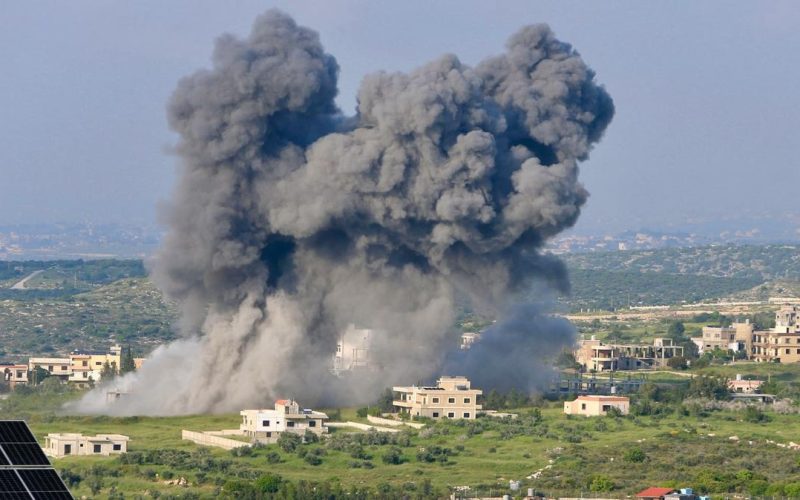The situation for Ethiopians living in Lebanon has become increasingly dire. As the Middle East conflict persists, just shy of its one-year anniversary, a new front has emerged between Israel and Lebanese Hezbollah.
Lebanon, a country already battered by economic and political instability, is now facing intense Israeli airstrikes, further endangering its population, including the large community of Ethiopian expatriates.
Lebanon, one of the Middle Eastern nations where tens of thousands of Ethiopians reside, has seen several of its cities, including the capital Beirut, subjected to Israeli air raids.
In the wake of this escalation, more than 30,000 Ethiopian citizens living across the country are caught in the crossfire, facing mounting uncertainty and danger.
An Ethiopian woman, who requested anonymity out of fear for her safety, shared her harrowing experience.
She lived in Nebelet, a town in southern Lebanon that has been heavily bombarded. “It’s been four days since I fled to Beirut with my employers after a series of airstrikes. I came to Lebanon eight years ago to support myself and my family. Six days ago, our neighbor’s house was bombed, and we left for Beirut in terror,” she explained.
Though she initially believed Beirut would be a safe haven, the situation remains precarious. “We are now sheltering in a hotel with my employers, but they have no money to keep us here much longer. I don’t know what will happen next,” she added.
When asked about the support she needs, she expressed frustration with the Ethiopian embassy’s response. “I heard the Ethiopian embassy in Beirut asked us to register, but when we called, they didn’t answer. I’ve seen others register in the past and not receive help, so I’m hesitant. I don’t want to return to Ethiopia under these circumstances,” she lamented.
Another Ethiopian woman, still living with her employer in a residential complex in Beirut, described the constant fear of Israeli attacks. “I’m in a residential village. If the Israelis think militants are hiding in the building, they’ll target the entire structure. It’s terrifying.”
Many Ethiopians, particularly those employed in southern Lebanon—an area where the conflict is most intense—have fled to Beirut for safety.
These workers, although some are legally employed, are uncertain about their future. “We’re trying to help each other financially, but we don’t know what’s going to happen next,” said another Ethiopian resident.
A different Ethiopian national, who was displaced from Saida in southern Lebanon, is now living in a school-turned-shelter in Beirut.
However, she pointed out that the situation is especially bleak for undocumented Ethiopians, many of whom have ended up on the streets after losing their jobs and support systems.
When asked about the Ethiopian government’s call for citizens to register for future assistance, the response was one of skepticism. “We’ve all heard the consulate’s announcements, but the registration feels like a formality. It doesn’t really help,” she said. “Many Ethiopians who haven’t been paid by their employers in years were registered for aid, given shelter, and yet continue to face harassment.”
The Ethiopian Ministry of Foreign Affairs’ consulate office in Beirut issued a statement three days ago, warning that the security situation, especially in southern and eastern Lebanon, is worsening.
The consulate urged Ethiopians to take all necessary precautions to protect themselves and avoid areas that may become targets of violence.
Additionally, the consulate called on Ethiopian nationals to closely monitor updates and be ready to follow further safety instructions should the situation deteriorate.
The Ministry also reiterated the importance of registering with the consulate to receive assistance.
During a recent press conference, Ambassador Nebiat Getachew, the spokesperson for the Ministry of Foreign Affairs, emphasized that Ethiopians in Lebanon will be supported through the consulate in Beirut and other measures coordinated with the ministry’s main office.
However, the challenge remains as the conflict continues to escalate, leaving many Ethiopians uncertain about their future in the war-torn country.
